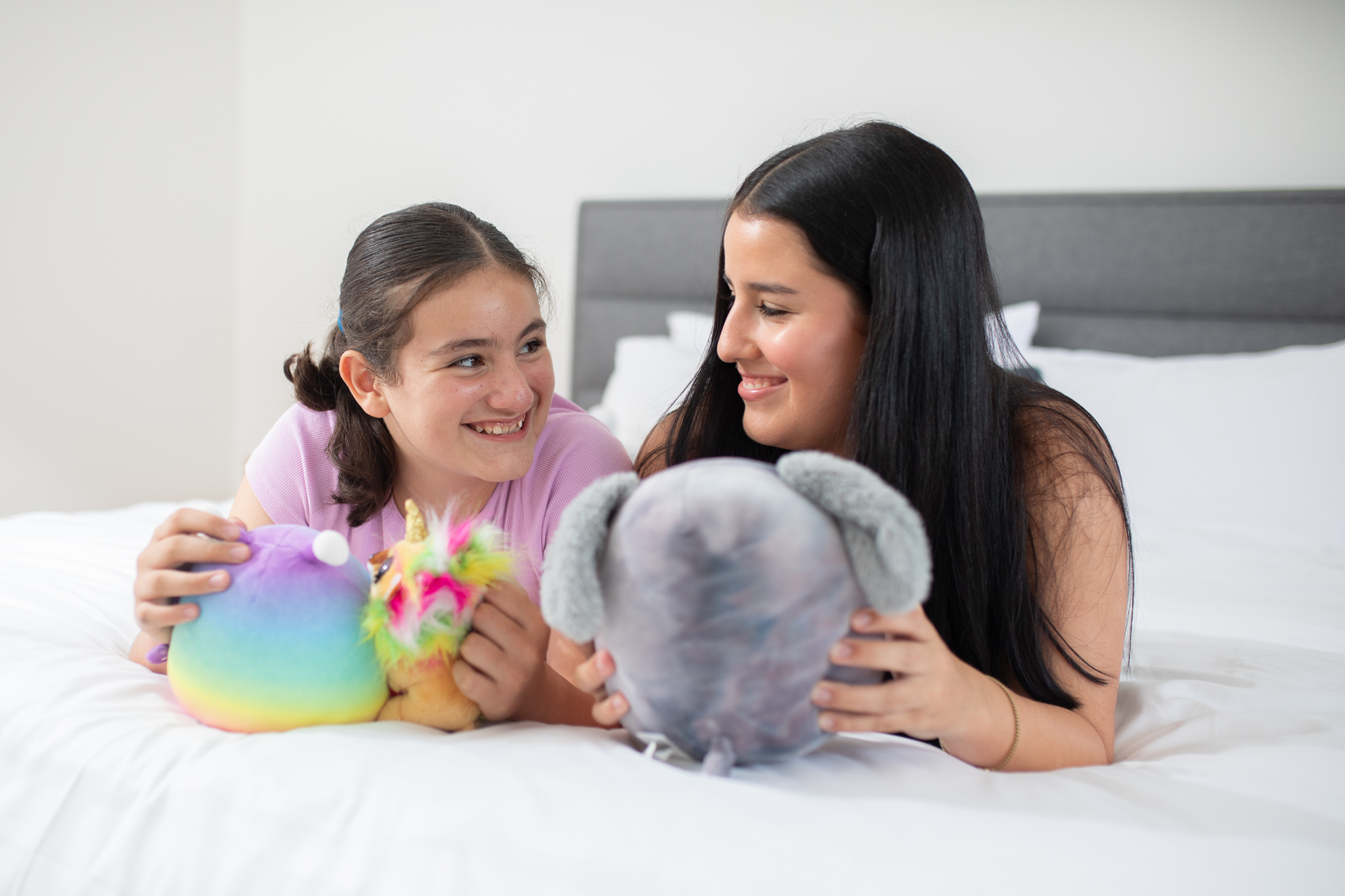Calming the Christmas Chaos

Ho, ho, ho, and a bottle of rum… oh hang on, wrong script…but, this could also fit how you’re feeling with the upcoming festive season, minus the ho, ho, ho, and more of the no, no, no to all the chaos, people, noise, shopping, and sensory bombardment, while thinking you might need a bigger bottle to get you through.
But it doesn’t have to be like this. At all. And I’m here to give you some tips on how to make the festive season actually fun, like they say on the TV, and in books and magazines ...
For parents, school is out, kids are home, routines are gone.Hmmm…. I can feel the tension already. How can we do all the extra shopping, planning, coordinating, wrapping presents, cooking, and eating, while best supporting your family, without the usual structure and routine that is often essential to both little and big people on the spectrum.
First step, pre-plan the pre-plan.
I cannot emphasise pre-planning as much as possible. And not just for Christmas Day and New Year’s. You need to pre-plan your pre-plan for these main events. You really wouldn’t want to say that sentence too many times after a couple of egg nogs…
Anyway, back to the pre-planning…
Our young autistic folk are usually off school for about six weeks and it is quite some time without clear structure of what is happening every day. Where possible consider the following strategies in having a long-term routine throughout the school holidays.
- Sleep: Keep to a regular wake up and go to bed time. You want to ensure that children, teens, and adults (parents, that includes you too!) have a regular good sleep schedule. When we have good sleep, we can cope better with what is thrown at us during the day. Lack of sleep… we get cranky…and you know what that leads to …
- Food: Where possible, keep to the usual mealtimes and food choices. It can be easy to eat way too much of the not so good stuff as we head up toChristmas. Saving Christmas Eve and Christmas Day for indulging a little can make the day seem more special as well, compared to indulging for weeks on end which can be difficult to shift back from and into our usual routine.
- Routine: Routine is super important. It lessens anxiety and stress by reducing the unknown and the unexpected. People on the spectrum love structure and routine, so let’s keep it going through the holiday period. You’ll thank me for this ;)
- Self-care: Do it before, not after the events. Start right now with self-care practices. Whatever these look like, make sure you are doing them regularly because when you look after you first, you are going to be in a much better headspace to look after your little, or not so little people. Plus, don’t listen to the nagging voice in your head saying, “push on, you can stop after Christmas is over”, stop now, take a breath, sit under a tree, make yourself a nice coffee, go for a walk, read a chapter of a book, listen to music … you get my drift … The more you do this, the better you will feel, the less stressed you will be and the more fun you will have.
The night before Christmas …
When that big guy with the red suit sneaks in and eats your cookies, drinks your milk and trips over the cat…waking up the kids…
Enter pre-planning the main events. Christmas Eve, Christmas Day,Boxing Day, New Year’s Eve and New Year’s Day. All in ONE WEEK!
I can feel that tension again. Can I speak to the management in having these days spread out over a few more weeks….how we wish we had more time to recover between each of these big days!
Careful planning is crucial to surviving a very chaotic and often unstructured week of festivities.
Some people thrive on the energy of this time, but for many autistic people of all ages, they struggle with not getting enough downtime, but have increased exposure to sensory overload from people, noise, smells, different foods, more people, relatives that want to hug you, presents, tinsel…oooh, look, squirrel…flashing lights, Wham, Mariah Carey, sticky tape, socks, funny hats, more turkey, red lollies, humidity, sweating, swimming pool, thunderstorms, cricket, alcohol, arguments, broken toys, tears, overwhelm, meltdown, shutdown….
It can be a really, really overwhelming experience, and all of this can happen in just one day. Do this repeatedly in one week, you will understand why planning is so important and knowing what your limits and expectations are.
Here are some strategies for the main events:
- Time limits: If you only want family or friends over for two hours, stick to that amount of time. Tell them when to arrive and when you would like them to leave. It’s your home, your family, and your rules. You know what is best for you all.
- Visiting other people: Again, plan when you are going to arrive and leave. Stick to that timeframe.
- Downtime and breaks: Scheduling during the day how long the family needs to recover before more people visiting, or going out to other events. If your family can only do two hours each day, that is completely fine. You know what is best! If other people have an issue, it is just that, their issue, not yours.
- Hugs and kisses: Make it clear to family and friends if your child does not like being hugged or kissed, especially when unexpected and by people they don’t know well. Educate people to ask first, before launching in. If they say no, respect that. And the autistic person will also respect you a whole lot more if you are considerate to their experiences, likes and dislikes. You never know, you just may end up being that favourite aunty, rather than the dreaded aunty!
- Social hangovers: Many adults have experienced what an alcohol induced hangover feels like, well, when we socialise too much, we can feel pretty much the same when we wake up the next day. Dreadful. This also happens to our little people, so again, limit the amount socialising and increase the amount of downtime and energy giving activities to recharge their batteries. Yes parents, you do this too! Re-charge regularly!
So, there we have it, a handful of tips that can make a significant impact on how well you survive one of the most chaotic weeks of the year. Plan carefully, takes regular breaks, know your family’s limits, and get some good sleep. When we implement just a few good strategies, it can make the world of difference to your autistic children, teens, and adults, and it can make a huge impact on your wellbeing as parent.
And you never know, that big guy in the red suit might just get enough sleep to not trip over the cat and a silent night may be had by all….
By Barb Cook, Developmental Educator
Director NeuroEmploy Pty Ltd / NeuroDiversity Hub Gympie
Founder Spectrum Women






